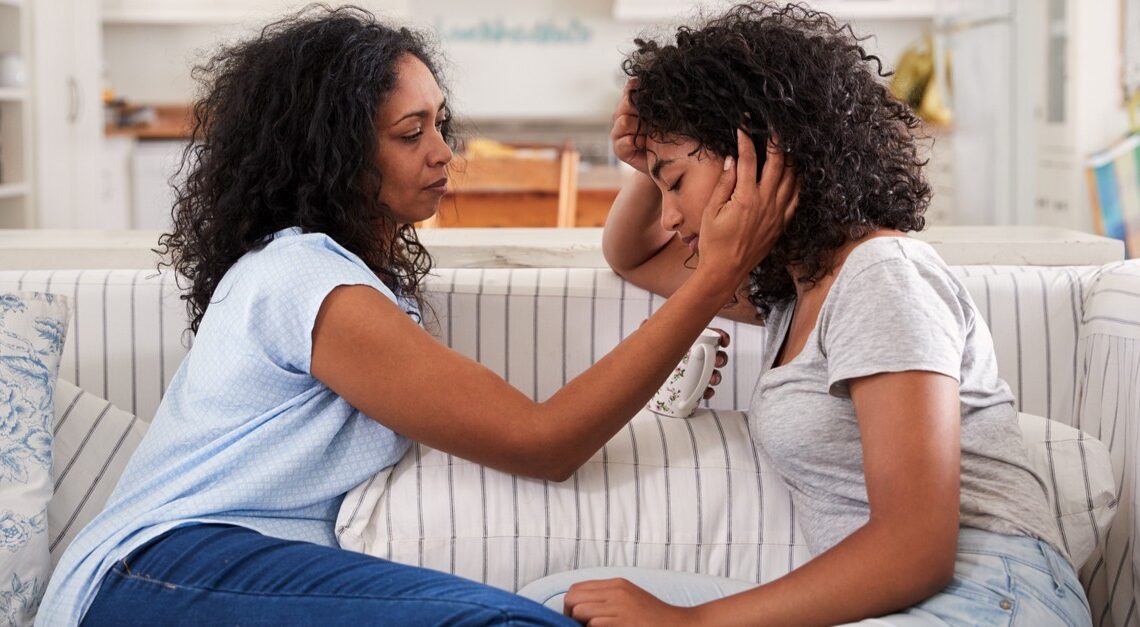My Daughter is Repeating Our Private Conversations

By Elizabeth Catos, Medium
There comes a time in every parent’s life when you realize you can’t just talk about anything in front of your kids anymore. Their little ears are poised to pick up juicy tidbits, and their mouths are ready to run a mile with the filter turned right down to non-existent. The realization the chat honeymoon is over generally comes around in the form of a big, embarrassing mess that leaves you red-faced and checking out parenting books.
One of the best things about having a partner is that on a hectic day, you can both sit down with a wine/cup of tea and debrief on your day with no judgement and no need to hold back. Everything you’ve had inside can pour out like an overflowing river that needs to smash down some trees.
I wouldn’t say I trash talk to anyone, but it’s nice to discuss things without all the guards up. Considering the implications of everything you say to other adults can be awfully tiring. I’m an introvert and find human interaction exhausting at the best of times. Getting home to a supportive partner is like a mental backrub. You know your spouse isn’t going to take anything the wrong way or hold it against you. It’s just a little piece of venting heaven.
However, your magical freedom bubble starts to burst around the time your little one approaches four or five. They really start focusing on listening to adult conversations, and the recall ability of their memories seems to get bumped up to superhuman capacity.
About a month ago, my daughter had a dress-up day at school. It was perhaps the third one that year, so I wasn’t too impressed. I had pulled something together at the last minute, which wasn’t altogether bad, and felt quite happy when I dropped her off in the classroom. As we walked through the door, my daughter’s beautiful teacher commented on what a great costume she had worn. ‘Thanks!’ came my enthusiastic kid, ‘Mum thought the dress-up day was stupid, but she did an okay job’.
Oh dear, please open up now giant hole and swallow me up.
I’ve found, without a doubt, the worst timing of a secret reveal is when it comes much, much later after the words have left your mouth. You may have let something slip, held your breath and thought you’d got away with it, only a month later to hear the offending words coming back to bite you in the backside.
A family friend recently moved into a new neighborhood. I had casually mentioned to my husband that I wouldn’t want to live around that area because the crime is so high, and it doesn’t have great amenities.
Cue one month later when the friend drops by, and we’re discussing his new hood. Just as you do, I say the suburb seems friendly when my daughter pipes up and declares (with immense pride) ‘But mum, you said you wouldn’t want to live there because it’s scary and there’s nothing to do’.
My face went bright red. I froze. I had nowhere to go but deep into a pool of my own shame. And so I gave a little laugh and kept talking. He left shortly after that. It was all very uncomfortable, and I’m wondering when I’ll hear from him again (if ever).
The thing is, I didn’t want to correct her in front of our friend because my daughter was right. She had, essentially, repeated what I’d said, and I wasn’t going to make her feel like she had done something wrong. At her age, filters are not super strong, and we shouldn’t expect kids to understand adult nuances and sensitivities.
I remember being in the same situation as my daughter when I was young. On a few occasions, my parents pulled me aside and told me I’d overstepped the mark of what I should have, or have not, said in polite conversation.
Instead of helping me understand what was appropriate as ‘home talk’ and what was for public, their scolding made me too scared to open my mouth at all. From that point on, right into adulthood really, I would prefer not to say anything when family friends were over for fear of saying the wrong thing. It seemed easier not to talk at all. Being confused about what I could and could not say has always made me second guess my judgement.
Instead of blaming children for being too honest, the only behavior that needs to be corrected is that of adults. As parents, we need to either be kinder in our language or watch out a little better for our children’s ears. It’s my job as a parent to set the best example I can for my daughter, and this is a good example of why sometimes I need to up my game. After all, she’s just doing exactly what she’s supposed to be doing — acting like a child.





Leave a Reply